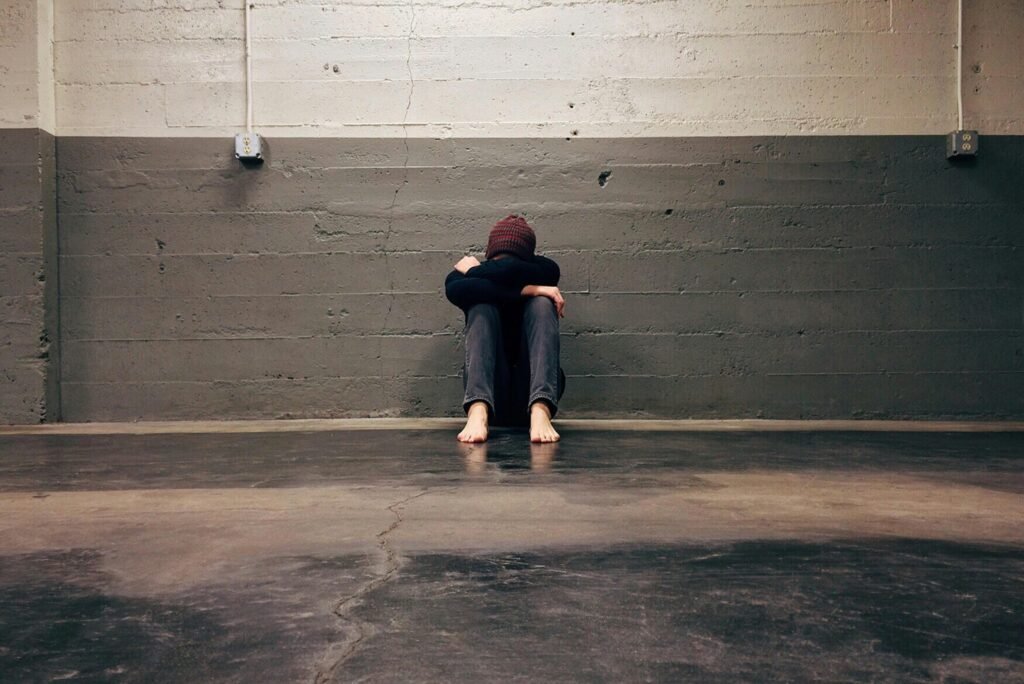Follow us and share.
Mental Health at Risk: How Depression and Anxiety Affect Your Life
Discover how depression and anxiety affect daily life and what to do to manage them. Learn about symptoms, risk factors, and strategies to improve your mental health.

The Importance of Mental Health in Daily Life
Mental health is a fundamental pillar of general well-being. However, disorders such as depression and anxiety have reached alarming levels worldwide, affecting the quality of life of millions of people. These disorders not only impact emotional well-being, but also personal relationships, work productivity, and physical health.
In this article, we explore how depression and anxiety impact daily life, their most common symptoms, and effective strategies for managing them and preventing further complications.
What is Depression and How Does It Affect Daily Life?
The depression It is a mood disorder characterized by a persistent feeling of sadness, hopelessness, and loss of interest in previously enjoyable activities. It's not simply "feeling sad," but a condition that can significantly interfere with daily routines.
📌 Main symptoms of depression:
- Constant feeling of sadness or emptiness.
- Loss of interest in recreational or social activities.
- Fatigue and lack of energy even after resting.
- Difficulty concentrating or making decisions.
- Changes in appetite and sleep (insomnia or hypersomnia).
- Recurring thoughts of death or suicide.
📌 Impact on daily life:
- Reduced performance at work or school.
- Social isolation and deterioration of personal relationships.
- Increased vulnerability to physical illness due to prolonged stress.
📌 Prevention and management:
- Psychological therapy, such as cognitive behavioral therapy (CBT).
- Regular physical exercise to stimulate the production of endorphins.
- Establishing healthy sleep routines and habits.
WHO – Guide to depression and its impact on mental health.
Anxiety: The Silent Disorder That Affects Well-being
The anxiety It is a natural reaction of the body to stress. However, when it becomes chronic or disproportionate, it can seriously affect daily life. generalized anxiety disorder (GAD) It is one of the most common forms, characterized by excessive worry and physical symptoms such as muscle tension and tachycardia.
📌 Main symptoms of anxiety:
- Nervousness and excessive worry.
- Accelerated heart rate and difficulty breathing.
- Feeling restless or having difficulty relaxing.
- Digestive problems, such as stomach pain or nausea.
- Difficulty falling asleep due to intrusive thoughts.
📌 How anxiety affects daily life:
- It reduces the ability to concentrate on work or academic activities.
- It can lead to avoidance of social situations for fear of others' judgment.
- It increases the risk of developing other health problems, such as hypertension or digestive disorders.
📌 Strategies to control anxiety:
- Techniques of deep breathing and mindfulness.
- Setting workload limits to reduce stress.
- Reduction of caffeine and other stimulant consumption.
Mayo Clinic – Information on generalized anxiety disorder.
Risk Factors and How to Prevent Them
Mental health disorders can be influenced by multiple factors, some of which can be prevented with lifestyle changes.
📌 Factors that increase the risk of depression and anxiety:
- Family history of mental disorders.
- Prolonged work or academic stress.
- Lack of social support or isolation.
- Consumption of substances such as alcohol or drugs.
- Sleep problems and poor nutrition.
📌 Preventive measures:
- Maintain a structured routine with stable schedules.
- Foster positive interpersonal relationships and seek emotional support.
- Practice physical exercise regularly to improve mental health.
- Seek professional help if symptoms persist.
NIH – Prevention of mental health disorders.
When to Seek Professional Help
It is crucial to understand that both depression and anxiety are treatable disorders, but they require appropriate intervention. Many people avoid seeking help out of fear or ignorance, which can worsen symptoms.
📌 Signs that it's time to see a specialist:
- Symptoms significantly affect daily life.
- Feelings of hopelessness or suicidal thoughts.
- Complete loss of interest in essential activities, such as personal hygiene.
- Sleep and eating problems that persist for weeks.
- Frequent episodes of panic attacks or nervous breakdowns.
💡 You are not alone: If you feel that anxiety or depression is affecting your life, seek help from a psychologist or psychiatristThere are effective therapies and treatments that can improve quality of life.
CDC – When to seek help for mental health.
Conclusion: Mental Health Is a Priority
The depression and anxiety They can seriously affect daily life if not managed properly. However, with the right strategies and professional support, it is possible recover emotional well-being and improve quality of life.
🌟 Advice: Prioritize your mental health with healthy habits, social support, and professional help when needed. Your emotional well-being is just as important as your physical health.
Discover how excessive technology use affects mental health.



